Learning the differences of oil painting vs acrylic is important for several reasons. Primarily, the more we understand the mediums with which we paint, the better painters we will be able to become.
This article will give you a brief understanding of the history between oil paints vs acrylic. As well as tackle some of their key differences!
Oil paints vs acrylic (history and differences)

Acrylic paint was first released around the 1950’s and as it being a fast drying medium it became wildly popular. It uses synthetic resin as a binder instead of oil – the main reason for its quick drying time. Depending on how it is used it can look like watercolor, oil paint or like its own unique acrylic self.
The artist, David Hockney was an early champion of acrylic paint, using it shortly after it was introduced to the world.
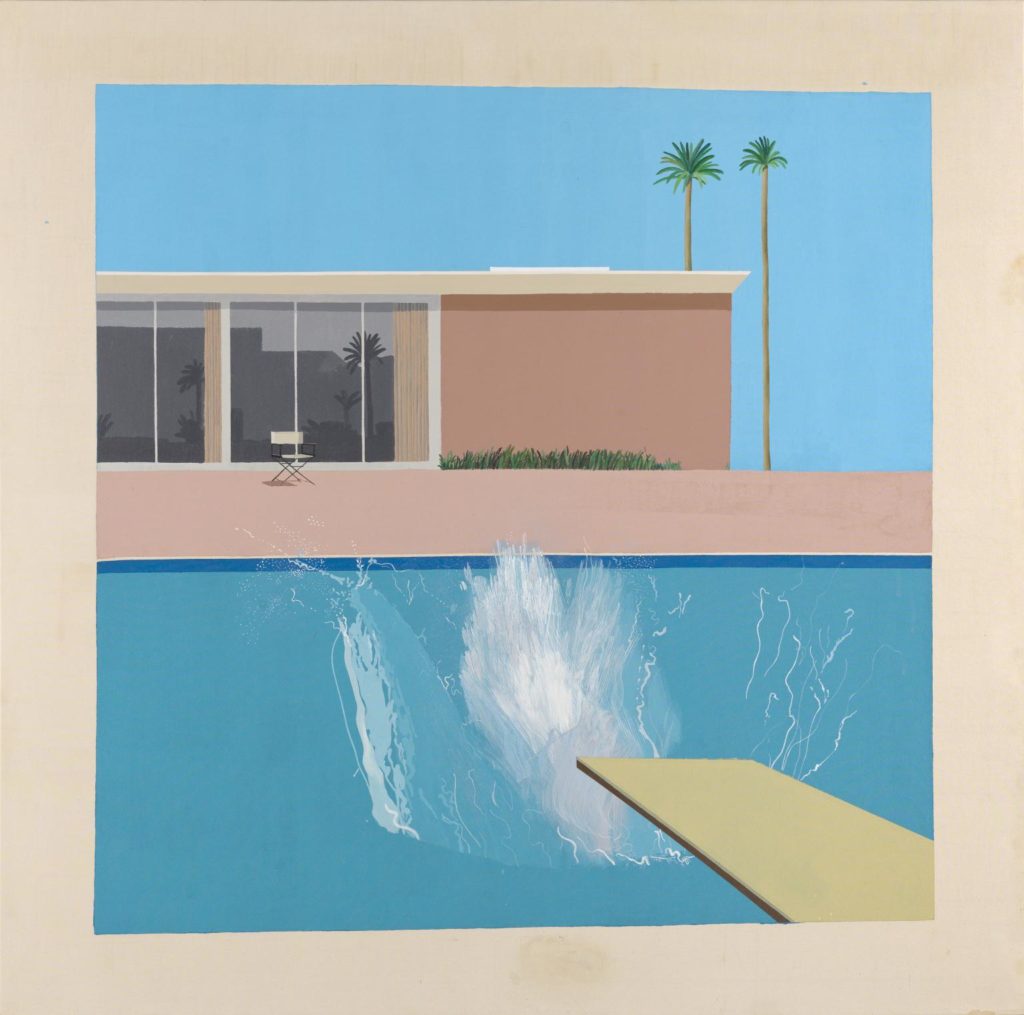
Unlike acrylic paint oil paint uses oil (commonly linseed oil) to bind pigments and therefore is a slow drying medium. Oils are definitely the historical medium out of the two. Dating back to at least 12th century Europe where they were first used for simple decoration. It was not until the 15th century that oil paints were widely adopted.
The Flemish painter Jan van Eyck did not invent oil painting but created novel effects with the medium that elevated painting to an entirely new level.
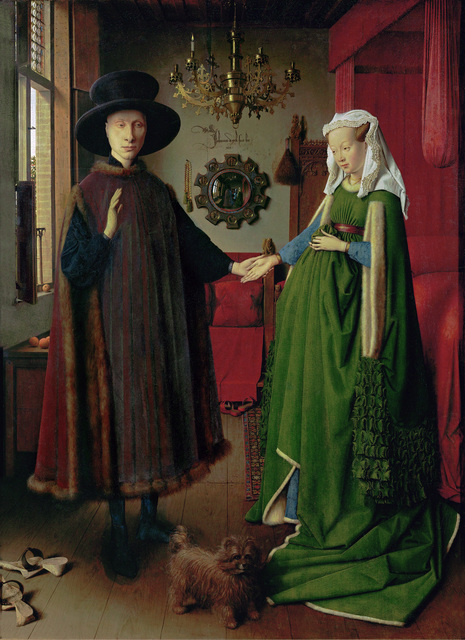
Oil Paints vs Acrylic color qualities
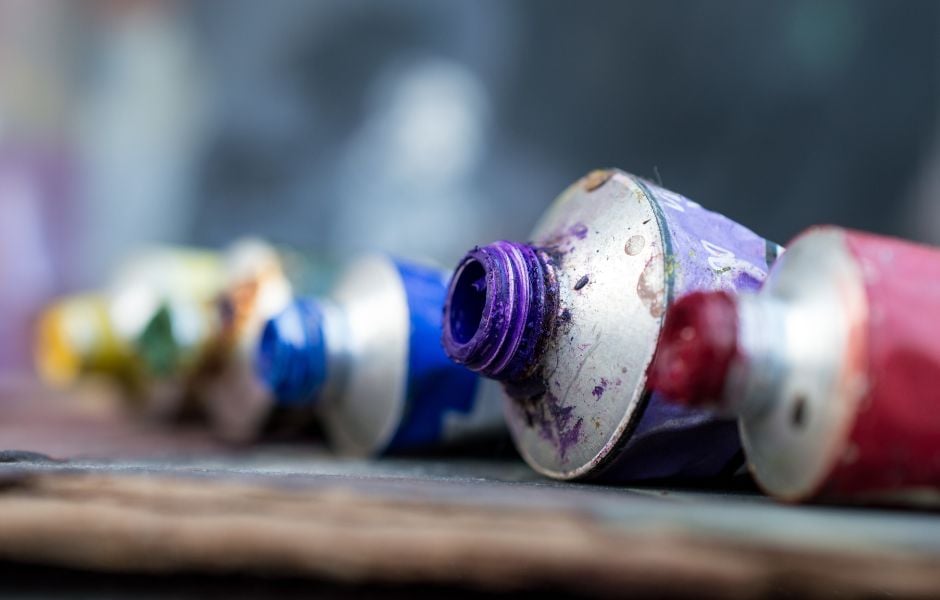
In general oil paints tend to have a richer color than acrylics. Though oil paints do show that they fade over hundreds of years. Acrylic paints have not been around long enough to truly know, but it appears that acrylic paintings do not fade. Acrylics also might darken slightly as they dry, while oil paints do not. In fact oils sometimes do the opposite and lighten a little as they dry.
Oil Painting vs Acrylic drying times
The biggest difference between acrylic paint and oil is drying time. Acrylic paint dries in under an hour if not minutes. Thus you have to be on top of it when it comes to washing your brushes right away and cleaning your palette. If you do not clean your brushes right after finishing your painting session – the paint will dry on your brushes and they will be ruined! Oil on the other hand dries within days (at the quickest) therefore there is not as much urgency required when it comes to brush cleaning!
If you haven’t yet – Grab my FREE Color Mixing Guide for color mixing helpful techniques for use in your painting!
Different properties when considering Oil Painting vs Acrylic

Texture of the paints
Oil paint has more of a smooth texture to it and appears more ‘luminous’ than acrylic. When comparing the two acrylic has a rough and porous texture to it and falls a little flat when comparing it to the ‘vibrant’ quality of oil. Acrylic paint shrinks sometimes while drying so brush effects are sometimes lost. The water that is lodged in it when applying the paint evaporates during drying time causing the shrinkage.
Weight of the paint
Oil paint is generally heavier than acrylic paint. The weight of oil paints vary as to which color you are referring to (as some contain heavy metals while others do not and are therefore lighter). Acrylic paints are light and for the most part are uniform in weight regardless of color.
That said, stiffer brushes (such as bristle) do not work as well on Acrylic paints because it is so light. the brush would broom the paint up instead of laying it across the canvas.
Solvent/ Water
One wonderfully easy thing about Acrylic paint is that it uses water to be diluted instead of solvent. This makes acrylic paint much easier to clean up when compared to oil paints and is perhaps a big reason why many choose acrylic paint over oil paints.
For clean up with oils you can use vegetable oil/ soap (olive oil soap works great actually!). Just be sure to never use solvents on your own hands/ arms – it is very bad for you!
Toxicity
It is not true that oil paint is more toxic than acrylic paint. It is the pigment that makes a paint toxic or not. Both acrylic and oil paints contain the same pigments (or at least all good quality artist pigments are the same). The binding medium for oil paints – linseed oil – is even edible. The same cannot be said of acrylic paints which use synthetic resin binders and chemicals to make balanced paint.
As you can see oil and acrylic paints vary greatly in their properties. It’s up to you and your vision for your work to decide which medium will serve that vision the best!
Now that you know a bit more about the differences between oil painting and acrylic painting here’s a couple suggestions. Perhaps you’re an acrylic painter who wants to learn how to get started oil painting?! Or maybe you are an oil painter who would like to try your hand at learning acrylic painting tips! The important thing as artists, is for us to experiment, learn and continue to grow.

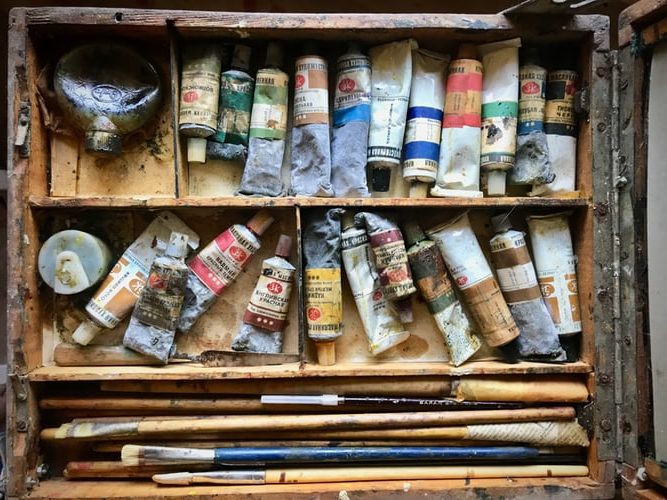

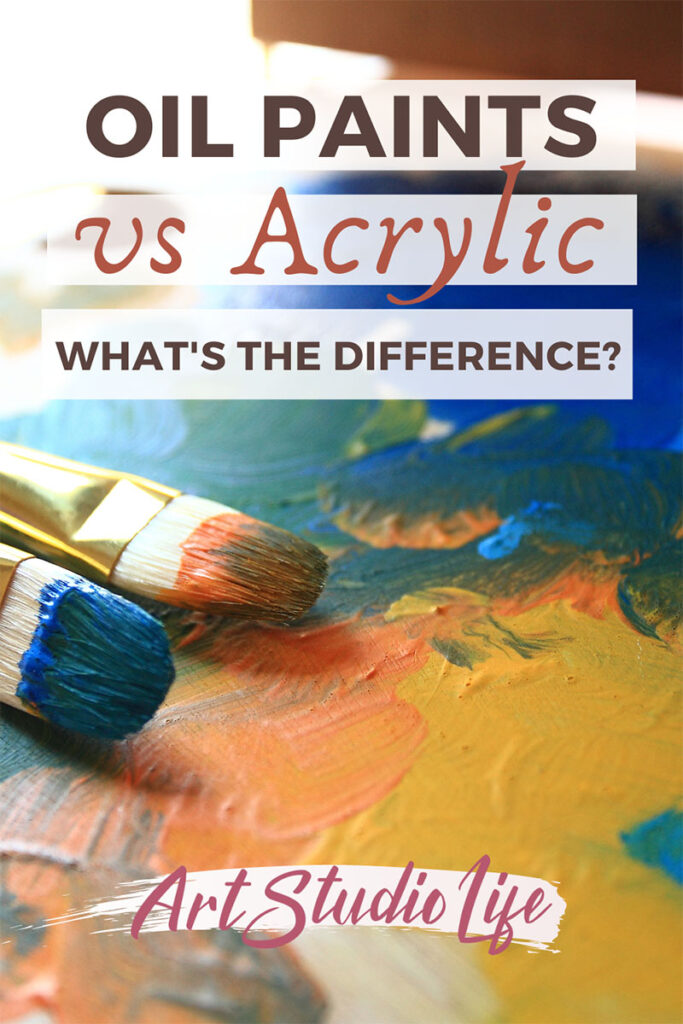


6 thoughts on “Oil Painting vs Acrylic Painting: What Makes them Different”
I am new to oil painting but think it is good for figurative art – whereas acrylic paint is great for abstract art, I love both mediums!
Am glad that you love both mediums – especially oil paints!
Hi Elisabeth,
I did a 9’ by 28’ canvas for my wall with acrylics. I expected more natural light on it from the skylights. The Winter scene keeps the sun too low!
I used semi gloss coating &
am glad I did not do heavy…too much glare.
Hi Patricia, I remember you sharing about that painting! I am always so impressed with the size of it – such an incredible work. You inspire me to also work at some large sized paintings 🙂 That is good you did not go too heavy with the coating – as too much glare/ shine can really detract from a painting!
i WAS TOLD THAT ACRYLIC PAINTINGS DO NOT FADE IN SUNLIGHT, WHILE OIL PAINTINGS DO NOT. I WANT TO PUT AN ACRYLIC PAINTING ON A WALL WHICH DOES GET SOME SUNLIGHT DURING THE DAY. THERE IS A SHADE THAT FILTERS SOME LIGHT, BUT NOT ALL OF IT. WILL MY ACRYLIC PAINTING DEGRADE IN THE SUNLIGHT?
Hello Carlie, Good question! It is best to avoid year round sun exposure for acrylic paintings (same for oil paintings). If you are concerned about sun exposure it might be worth looking into getting UV proof glass to put your painting under and try to look for a spot with indirect natural light. I hope that helps! 🙂